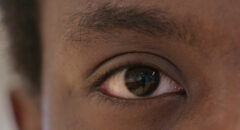
Actor, director, and producer Forest Whitaker is best known for his award-winning roles in movies like The Butler, The Last King of Scotland, Platoon, The Color of Money and so many more.
RELATED: Forest Whitaker: Behind-The-Scenes Of His International Peace Movement
Whitaker attended California State Polytechnic University, Pomona on a football scholarship, but a back injury made him change his major to music (singing). He toured England with the Cal Poly Chamber Singers in 1980. While still at Cal Poly, he briefly changed his major to drama. He was accepted to the Music Conservatory at the University of Southern California to study opera as a tenor and subsequently was accepted into the University's Drama Conservatory. He graduated from USC in 1982. That's the same year he got his first role in a major movie, Fast Times At Ridgemont High. Now, at age 63, the rest, as they say, is history.
The True Story Behind His Wandering Eye
With all of his great acting, directing and producing, have you ever, in the middle of watching a movie with Forest Whitaker playing a role, wanted to know what was up with his eye? He has a drooping eye on one side of his face. There's hundreds of thousands of internet search terms for it, a number of blog pages dedicated to it, and thousands of memes addressing it, too.
RELATED: Forest Whitaker & Wife Celebrate 22 Years: "We Spend Time As Friends"
Well, as it turns out, Forest suffers from a hereditary condition known as Ptosis. Ptosis is a drooping of the upper eyelid. Ptosis is also known as lazy eye.
Ptosis, also known as blepharoptosis, is a condition that causes the upper eyelid to droop or fall over the eye. It can affect one or both eyelids and can be present at birth or develop later in life. Ptosis can be caused by problems with the muscles or nerves that open the eyelid, or by swelling of the lid.
Symptoms
Symptoms of ptosis include:
- Drooping eyelid
- Tilting the head back to see under the lid
- Raising eyebrows repeatedly to try to lift the eyelid
- The affected eye appearing smaller than normal
- Excessive rubbing of the eyes
- Increased tearing
- Decreased or impaired vision
- Tiredness and achiness around the eyes
If the condition is present from birth, it's often due to a problem with the levator palpebrae superioris muscle. In adults, ptosis can be caused by aging, eye injury, or as a side effect of certain eye surgery.
What Actually Caused His Eye to Droop?
Ptosis occurs as the result of dysfunction of the muscles that raise the eyelid or their nerve supply (oculomotor nerve for levator palpebrae superioris and sympathetic nerves for superior tarsal muscle). It can affect one eye or both eyes and is more common in the elderly, as muscles in the eyelids may begin to deteriorate. Babies may also exhibit ptosis at birth as the result of abnormal development of the levator muscle while the child is in the mother's womb. Congenital ptosis is hereditary in three main forms.[3]
Causes of congenital ptosis remain unknown. Ptosis may be caused by damage to the muscle that raises the eyelid, damage to the superior cervical sympathetic ganglion or damage to the oculomotor nerve, which controls the muscle. Such damage could be a sign of an underlying disease such as diabetes mellitus, a brain tumor, a pancoast tumor (apex of the lung) and diseases that cause weakness in muscles or nerve damage, such as myasthenia gravis or oculopharyngeal muscular dystrophy. Exposure to the toxins in some snake venoms, such as that of the black mamba, may also cause this effect.
Ptosis can be caused by the aponeurosis of the levator muscle, nerve abnormalities, trauma, inflammation or lesions of the lid or orbit.[4] Dysfunctions of the levators may occur as a result of autoimmune antibodies attacking and eliminating the neurotransmitter.[5]
Ptosis may be attributable to a myogenic, neurogenic, aponeurotic, mechanical or traumatic cause, and it usually occurs in an isolated manner. However, it may be associated with various other conditions, such as immunological, degenerative or hereditary disorders as well as tumors or infections.
Ptosis isn't usually harmful to your health, but you may want to reduce the drooping. If the ptosis is mild and caused by aging, some non-surgical procedures may be beneficial, such as Botox, dermal fillers, radio frequency, or laser treatments. You may also opt for plastic surgery.
READ THIS: Eye Problem Warning Signs
What Does Forest Think of His Eye Problem?
Is he self-conscious about it? Does it bother him? When asked about his eye, Forest doesn't shy away from the topic at all. "My eye? It's a genetic thing. My dad had it and now I have it," explains Forest.

"You know, I just found out that it may be correctable a little bit because it does impair my vision. When I look up, I lose sight in this eye. I think maybe for other people, it informs the way they see me. But I don't really think about this eye, other than the times people talk about it, or when people take photographs of me sometimes they might say stuff about it. I don't think it makes me look bad or anything. It just is. I still strive to connect with people."
And strive with people he does. From producing and acting and directing, Whitaker is a creative force to be reckoned with in
front of and behind the camera. Forest was front and center in the latest remake of the iconic tv mini-series, "Roots" as an actor and producer. He has a number of films and projects in the works, all with the top Hollywood talent.
Not only that, he also runs a world-peace organization that brings resources to marginalized communities.
"It's important to me to connect with people, with feelings," Whitaker continues. "That's always been a goal in my work. In the beginning, that was the reason I was doing it, to find some connection with everyone, not as a movie star, but to find something in a character that would connect, that was part of the spirit that we're all connected to. I don't think about it in terms like that anymore, but I know I'm still guided to those kinds of projects, and I'll always be guided to them. I'm not attracted to anything that doesn't have to do with real relationships. I like fantasy, I like myth, and to me myth is even more connected to our core."
Visit the BlackDoctor.org Eye and Vision center for more articles.








